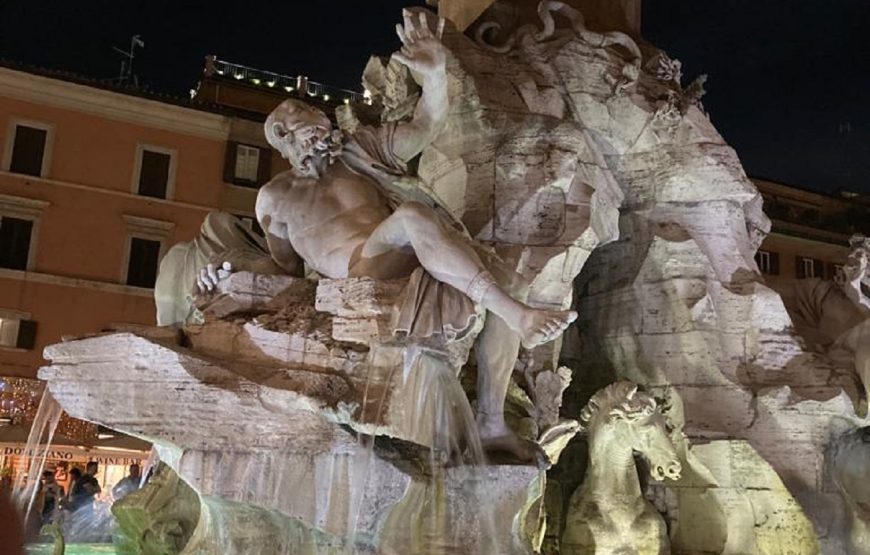from 0 review
1 h 30 min
Daily Tour
20 people
English










Masonic: Vittoriano, an imposing building, also called the Altar Nation, was designed as a monument to King Victor Emmanuel II, the ruler who executed the decades-long Freemasonry dream of a United Italia. The architect Sacconi designed the project of this grandiose complex because he was inspired by the exponents of the “second religion”, the powerful Freemasonry of Rome. The unification of Italy with its symbols made the Vittoriano complex the heart within the heart of Rome. On its walls, there are clearly visible symbols of “Freemasons” such as palm trees as a symbol of victory, laurel as a symbol of peace, oak as a symbol of strength and power, a woman who with her left hand catches a snake as a symbol of secret knowledge.
Our adventure through mystical Rome takes us further to Piazza del Gesu, where the Great Lodge of Italy-the “Serenissima” was officially founded. It represents a Masonic organization of an ancient Scottish order that refused the obedience to the radical Grand Master of the former Great Lineage. This location is also called the “pupal of the world” a kind of portal of both the physical and spiritual world.
In the next stage of getting to know esoteric Rome, we will get acquainted with the turbulent history of Palazzo Justiniano, Tempio Maggiore Antico, also called the “Green Vatican”. In the beginning of the nineteenth century, it caught an eye of the Lavy of the Grand Orient of
Italia. Designed as a residence, it also had it is “Grand Galerie” with a collection of works of art from antiquity to baroque, and thus became one of the “Grand Tour” of the young aristocracy of Europe. Inside the palace are also painted representations of an especially important Masonry, Solomon’s construction of the Temple in Jerusalem and Slomon’s trial.
On our route, we come to the heart of esotericism, the search for essence, at Piazza Campo Dei Fiori. Here we will meet the spirit of the eternal persuite for truth and the struggle for free thought, the monument to Giordano Bruno. To get closer to this truth, we must go back a few centuries, in the time of Inquisition, theatrical burning of the philosopher and freethinker Giordano Bruno, the essential conflict between red doctrine and science. It is interesting that the Catholic Church, until the middle of the last century, in various ways advocated the removal of this monument, but the Masonic influence for which Giordano Bruno became a symbol and role model, managed to preserve it from removal.
Piazza Navona hides within itself the very top of Masonic symbology, Element Water. Transformed into the magic fountain of Four Revers, created by Bernini’s hand. In secret circles, this “Last Altar of Science” is dominated by an obelisk, an Egyptian solar symbol at the top of which is located pigeon as symbols of the angels of peace. It symbolizes the being of light that is a mediator between this world and the Universe. Bernini also wanted to represent the four rivers as four continents which secretly represents the Masonic four words of life in Paradise.


